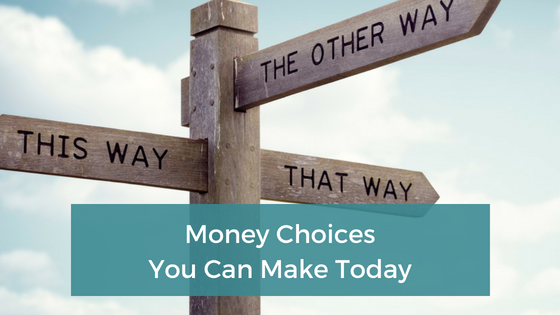By Babajide Okeowo
Financial choices you make early in life will go a long way in determining if you end up rich or poor.
According to Mark La Spisa, a certified financial planner and president of Vermillion Financial Advisors in South Barrington, Illinois “Money is really simple, but most people respond to it, they don’t plan for it” she said. By taking control and making a few smart decisions early on, you can put yourself in a much more secure position.
Here are a few things you can do early in life that you will thank yourself for later.
Mastering your cash flow
Developing good cash management habits is crucial, says La Spisa. “In your 20s, you’ve got to establish your discipline — otherwise it will haunt you for a lifetime.”
First, track your finances to make sure you understand where your money is going. Then be deliberate about your priorities, so you know you’re spending wisely on regular financial obligations like rent, utilities, and phone bills, and keeping your spending on the fun stuff in line with what you can afford.
La Spisa suggests a version of the 50-30-20 budget, which divides your income among basic living expenses, discretionary spending, and long-term savings and investments.
Pay yourself first
If you don’t commit to saving, it’s easy for other expenses to eat up your cash. Set up automatic contributions so that a portion of every paycheck goes into your workplace retirement account and gets pulled from your checking account into savings for other goals, Stanzak says.
An early start gives your money more time to grow and allows you to take advantage of compounding — when you’re earning interest on your interest as well as on your savings. In this classic example from the Federal Reserve Bank of St. Louis, someone who starts investing for retirement at age 25 ends up with more money at retirement, even though someone starting at age 35 contributes three times as much over the years.
READ ALSO: Lawan condoles with Kogi gov. over stepmother’s death
Avoid unnecessary debt
The power of compounding works against you when it comes to debt: Mounting interest charges can make it harder to pay off your balances. Limit your spending to what you can pay off in full each month, and be smart around borrowing for big purchases like a home or car.
Experts recommend that when it comes to financing a car purchase, for example, you stick to a borrowing term of five years or less — and then driving your car for at least another five years beyond that.
Spend money wisely
We make money, in part, so we can spend it—on things we need and want. In today’s society, it seems increasingly difficult to draw the line between needs and wants. Do you really need to buy potato chips at the store? Do you really need a computer upgrade? Do you really need the latest style of shoes? Of course, we buy many things that we don’t really need, but many things make life easier or more enjoyable or perhaps they just make us feel good about ourselves. There’s nothing wrong with buying things that you merely want, but it’s important to take care of actual needs first.


